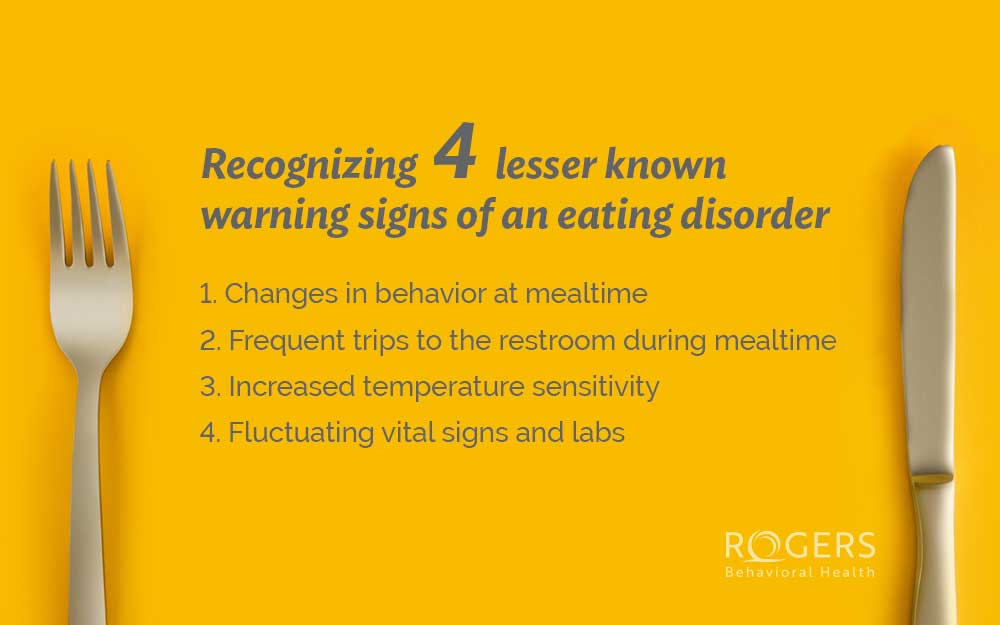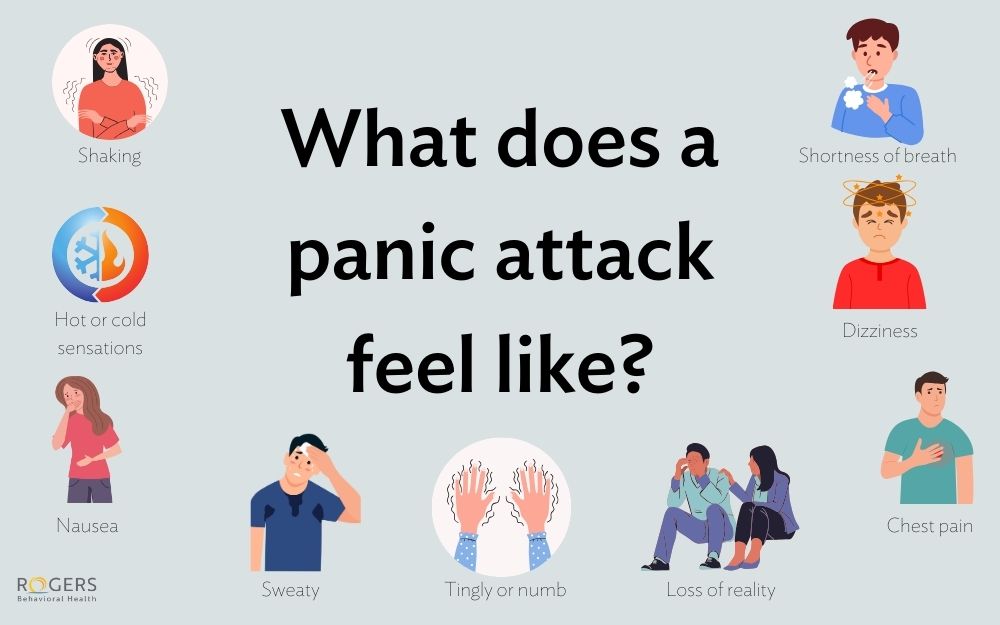Recognizing 4 lesser known warning signs of an eating disorder
Posted on 02/26/20 10:03:am
Share this article:
Millions of people nationwide, from all backgrounds, experience eating disorders. Unfortunately, the signs are not always obvious. Dr. Brad E.R. Smith, medical director of Rogers' Oconomowoc campus and Eating Disorder Recovery, sheds light on some hidden signs.
Signs of an eating disorder
Perhaps the most obvious external sign of disordered eating is rapid, noticeable weight fluctuations. "Particularly if the person is losing a significant amount of weight, the signs of severe weight loss and malnutrition are going to be readily visible," explains Dr. Smith.
"Individuals come in all shapes and sizes, so some are lower than average in body weight because of their genetics and family history. However, if someone jumps from the 85th percentile for height and weight down to the 20th percentile, it's likely a sign that there's something other than genetics at play," says Smith.
While changes in weight can be a very visible sign of an eating disorder, there are often more subtle indicators. These lesser known signs are one reason eating disorders can go on for long periods of time before an individual is diagnosed and able to seek treatment.
-
Changes in behavior at mealtime
Taking longer to eat, cutting up food into small or unusual pieces, hiding food, and avoiding or refusing to eat certain foods. These behaviors demonstrate a growing obsession with food and attempts to minimize what an individual is eating.
-
Frequent trips to the restroom during mealtime
This may be a sign that someone is purging after eating, which can be a symptom of bulimia.
-
Increased temperature sensitivity
In particular, complaining about feeling cold may be due to low body fat and malnutrition.
-
Fluctuating vital signs and labs
Problems with electrolytes, significant changes in blood pressure and pulse when going from a sitting position to standing up, and changes in heart rhythm may be detected by a clinician during an office visit or in lab results.
Eating disorder treatment at Rogers
Rogers offers inpatient, residential, and outpatient treatment for adults, adolescents, and children with eating disorders. If you or a loved one are suffering from an eating disorder, call 800-767-4411 or request a free, confidential screening online.
If you do not feel you or your loved one needs treatment right away, but may be concerned, we offer online quizzes to possibly provide some relief. While these quizzes do not provide a diagnosis, it could be the first step in finding the treatment you may need. Take our online Eating Disorder Quiz today.



